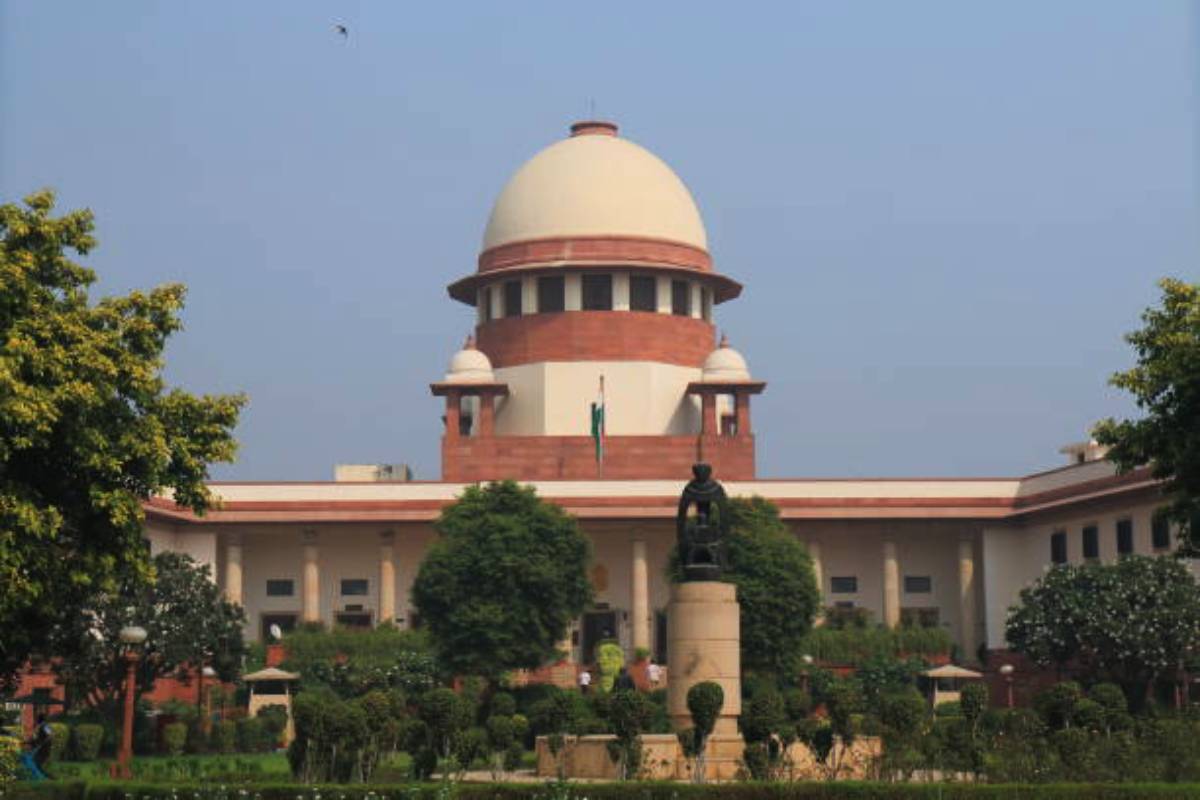HC grants bail to YouTuber Ashish Chanchlani in obscenity case
In a relief to popular YouTuber Ashish Chanchlani, the Gauhati High Court on Friday made absolute the interim bail granted to him in an obscenity case filed by the Assam police.
Does India’s new criminal law place too many barriers on the registration of an FIR by a citizen, asks Surja Kanta Baladhikari.

Supreme Court of India
The new criminal law under section 173(1) of BNSS, 2023 corresponding to 154(1) of Cr.P.C., 1973 has made the registration of FIR, irrespective of the place of the commission of the offence through electronic means, a possibility along with the existing means – orally or by a statement in the form of a complaint. This makes it simple for numerous reasons for the aggrieved to approach the police electronically, where now their official mobile numbers and email IDs are available on their respective websites, and inform about a cognizable crime.
The concept of preliminary enquiry was raised in the case of Lalita Kumari v. State of Uttar Pradesh, which granted seven days’ time for preliminary enquiry for cases like matrimonial offences, communal offences, medical negligence cases, corruption cases and delays between occurrence and reporting of offences.
Advertisement
The court further said that the FIR should be filed at the earliest regarding a cognizable offence. Secondly, there is also a need to check on the powers of the police which was implemented through the Criminal Law Amendment Act, 2013, section 166A of IPC, 1860 corresponding to 199 BNS, 2023 which didn’t work much because complaining about non-registration of a complaint is again not the objective of the people belonging to the challenged socio-economic conditions, and that too before the same authorities who once refused to register it.
Advertisement
The Supreme Court in Sashikant v. CBI and Rajendra Singh Katoch v. Chandigarh Admn. said that the police have the inherent power to make a preliminary enquiry before registration of FIR without fixing a timeline.
The Supreme Court in the case of State of Haryana v. Bhajan Lal said that in a complaint, when it is clear and unambiguous, the police are under a mandate to register an FIR in all cases of a cognizable offence.
The BNSS, 2023, as per section 173(3), now gives the statutory power to the police not to start the FIR and proceed with a preliminary enquiry for fourteen days for offences punishable between three to seven years (which cover the maximum number of crimes). This again restricts the common man’s FIR along with implications of loss of the initial time operating as the second restriction.
Further, in respect of 173(4), the common man has to approach the Superintendent of Police, which itself gives the power to the police at the very first instance of not proceeding with the registration of FIR but to proceed upon receipt of instructions from the Superintendent of Police.
The BNSS, 2023 in Section 175(3) corresponds to 156(3), which is popularly known as a court complaint case. When the police and Superintendent had refused the FIR, the court is used to order an investigation. The new law again puts a hurdle in the common man’s FIR by stating that the complainant has to file an affidavit that he had approached the Superintendent. Thereafter the Magistrate would proceed to hear the police officer about non-registration of FIR and would then order an investigation after inquiry. This would further inordinately delay the registration of a common man’s FIR.
In cases against a public servant in section 175(4), the Magistrate, before taking cognizance, ought to hear the alleged public servant about the alleged incident along with receiving a report from his superiors about the incident. This becomes problematic for cases where public servants are involved and have refused to register the FIR as per 173 of BNSS, 2023, where the common man’s FIR is again delayed which is also the same for court complaint cases under section 223(2) of BNSS, 2023.
The third restriction imposed upon us is in Section 223 of BNSS, 2023, corresponding to Section 200 Cr.P.C., 1973, which now mandates the court to give the accused person an opportunity to be heard before proceeding to take cognizance of the offence upon hearing the complainant and witnesses in cases against persons other than public servants.
This gives us a situation where the three gates to begin a criminal case, i.e., 173, 175 and 223 of BNSS, 2023 are obstructed with barriers. Whether this would be the mechanism to reduce the number of cases in the present system only time will tell but it surely obstructs the FIR by a common man, who is unaware of the other procedural intricacies of the system.
(The writer is Assistant Professor, West Bengal National University for Juridical Sciences. The views are personal.)
Advertisement